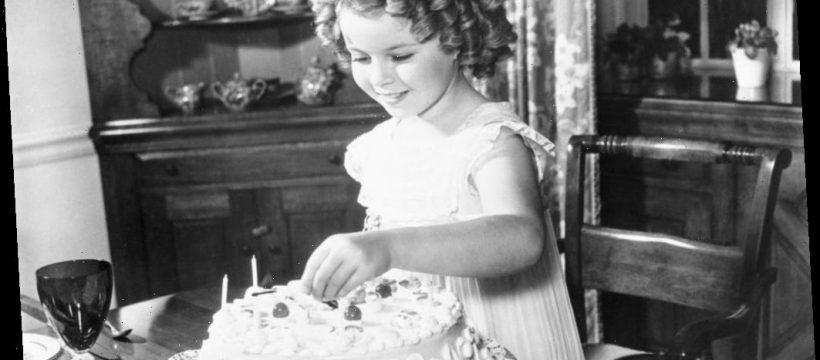Shirley Temples movies aren’t exactly known for being provocative, however, a scene from one of them was widely censored in the 1930s because of the way Temple interacted with a co-star. A similar scene made today would not inspire the same sort of controversy — but the film in question would be controversial for an entirely different reason. Here’s a look at the sequence — and what Temple thought of her co-star.
A Shirley Temple movie that could not be made today
In 1935, Temple’s film The Little Colonel was controversial for a dance sequence. However, if it were made today, The Little Colonel would be controversial for a completely different reason: its depiction of the Old South. Lionel Barrymore plays a Southern Colonel who disowns his daughter when she falls in love with a Yankee after the Civil War. The couple have a daughter played by Temple. Eventually, the family reconciles.
Despite dealing with the Confederacy indirectly, the movie doesn’t call it out. In addition, the film’s Black characters embody some offensive stereotypes. It’s hard to think The Little Colonel would be made today in the same cultural climate that produced movies like Django Unchained and Antebellum.
To put The Little Colonel in context, it was made one year before Margaret Mitchell published her problematic opus Gone with the Wind and four years before MGM published its blockbuster film adaptation. Portrayals of the American South like this were profitable. Audiences responded well to the film — and so did critics. for example, The New York Times‘ film critic Andre Sennwald wrote “Yesterday’s audience applauded The Little Colonel for eleven seconds after Miss Temple faded out in Mr. Barrymore’s arms. It seems to be right up to the standard of [Temple’s earlier film] Bright Eyes and ought to bring out the best in every one who sees it.” To see the film’s reception by The New York Times shows how much the world — and The New York Times — has changed in 85 years.
What the studio cut from ‘The Little Colonel’
Despite the currently inflammatory aspects of The Little Colonel, it went against the grain of the time in one major way. It depicted Temple dancing with a Black actor: Bill Robinson. NPR says their dance together was the first interracial dance in film history.
In the modern day, such a dance sequence probably wouldn’t raise a single eyebrow. However, at the time, the scene was considered taboo. According to the book Tap Dancing America: A Cultural History, Temple said the scene was cut when the film was shown in some Southern theaters. Others reports the scene may have been cut in only a few theaters rather than many. In some ways, this censorship backfired. As time went on, the intricate dance between Temple and Robinson on a staircase became the most famous sequence in the film — and one of the more famous moments in Temple’s filmography.
Interestingly, Temple and Robinson weren’t just co-stars, they were also friends. “Bill Robinson treated me as an equal, which was very important to me,” Temple told NPR. “He didn’t talk down to me, like to a little girl. And I liked people like that. And Bill Robinson was the best of all.”
Source: Read Full Article



